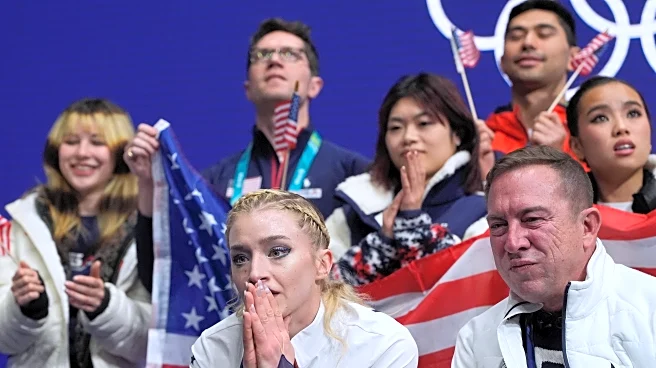What's Happening?
Pope Leo XIV has called on global leaders to confront the issue of hunger, which he described as being used as a weapon of war. During a speech at the U.N. Food and Agriculture Organization's World Food Day event, Pope Leo highlighted the plight of 673
million people who do not have enough to eat daily. He emphasized the need for a reevaluation of global priorities and lifestyles, urging leaders not to ignore the suffering caused by hunger and conflict. The Pope's remarks come amid significant funding challenges faced by U.N. food aid agencies, particularly the World Food Program, which reported unprecedented difficulties due to reduced contributions from the U.S. and other Western donors.
Why It's Important?
The Pope's appeal underscores the critical humanitarian crisis affecting millions worldwide, exacerbated by funding cuts from major donors. The reduction in aid threatens to push millions into emergency levels of hunger, particularly in conflict-affected regions such as Afghanistan, Congo, Haiti, Somalia, South Sudan, and Sudan. This situation highlights the ethical and moral responsibilities of global leaders to address the root causes of hunger and ensure adequate support for vulnerable populations. The Pope's condemnation of using hunger as a weapon of war calls for a collective international effort to prioritize human welfare over geopolitical interests.
What's Next?
The World Food Program has warned that without restored funding, 13.7 million people could face emergency hunger levels. This situation demands urgent action from international donors and policymakers to reassess their aid strategies and commitments. The Pope's call to action may prompt discussions among world leaders and humanitarian organizations to explore alternative funding mechanisms and collaborative efforts to mitigate the impact of reduced aid. The focus will likely be on ensuring sustainable food security and addressing the systemic issues contributing to global hunger.
Beyond the Headlines
The Pope's address also raises broader ethical questions about the role of developed nations in perpetuating global inequalities through selective aid distribution. The use of hunger as a weapon of war reflects deeper geopolitical conflicts that require diplomatic resolutions. Additionally, the call for lifestyle changes invites a cultural shift towards more sustainable living practices that prioritize global welfare. This could lead to increased advocacy for policies that address climate change, resource allocation, and equitable development.















